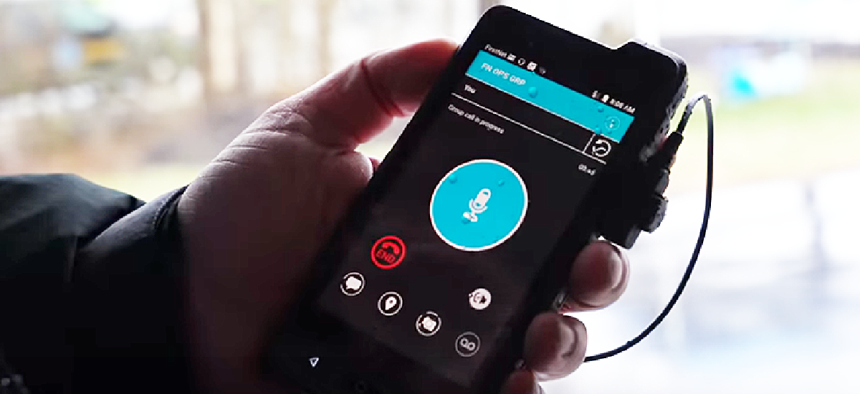FirstNet takes core network, devices, apps for a test run at Boston Marathon


Connecting state and local government leaders
First responders participating in the demo used FirstNet-ready devices with land mobile radio integration and location-based apps.
At this year's Boston Marathon, fire, police and incident response teams from Boston and Brookline, Mass., tested a variety of devices and applications connected to FirstNet's dedicated core network.
FirstNet, the nationwide public safety broadband network, announced the availability of its core network on March 27 and has since made FirstNet ready devices and applications available to responders.
First responders participating in the demonstration used FirstNet-ready devices with push-to-talk and land mobile radio integration applications. Thirty of the phones were outfitted with SIM cards and connected to the dedicated FirstNet Core.
The dual-use application was easy for responders to learn, according to Scott Wilder, the director of technology and communications for the Brookline Police Department. Responders could set up smaller groups where just fire fighters talked, for example, which kept the channel from getting congested with chatter that not everyone needed to hear, Wilder explained in a video.
Location tracking applications helped commanders track personnel and resources to coordinate response efforts. The Boston Fire Department was able to see the exact position of individual responders displayed on screens both in their communications center and mobile command units, FirstNet's Michael Varney said in a blog post. Commanders could identify which responder was nearest to an incident so they could save valuable time by dispatching the closest responder. The Boston Police Department kept track of the location of the fastest runners in each race category so officials could make more timely decisions about crowd control and street closings.
The 2018 race marked the five-year anniversary of the 2013 Boston Marathon bombings. After that attack, the wireless carrier networks were overwhelmed with traffic, and responders' "cell phones were completely dead," Former Boston Police Commissioner Ed Davis told Fox News. This year, with a dedicated network, security and communications are much better even with almost triple the number of police, he said.
The FirstNet core network, built by AT&T, separates public safety traffic from commercial traffic and supports priority and preemption capabilities and end-to-end encryption for responder communications.
So far, 17 devices have been approved for use on the FirstNet network and are now available for purchase through the FirstNet AT&T portal. The devices include three models of Samsung’s Galaxy smartphones; seven Apple iPhone models and two iPads; NetGear’s MR1100-330 hotspot; and Sonim’s XP5 rugged handhelds. Some of the devices will work on the core network with the installation of a FirstNet SIM card; other devices may also require a simple software update.
FirstNet is also holding a series of hackathons to increase the number of apps available to responders.
Responders have had a longstanding need for a reliable and robust public safety network, Wilder said. “Having the FirstNet application and the FirstNet network in place [after the Boston bombing] would have kept those communications we lost active,” he said. “If that happened today, we’d basically be doing what we’re doing today – we’d be able to communicate.”
Editor's note: This article was updated May 5 to correct the model of the Sonim handheld.





